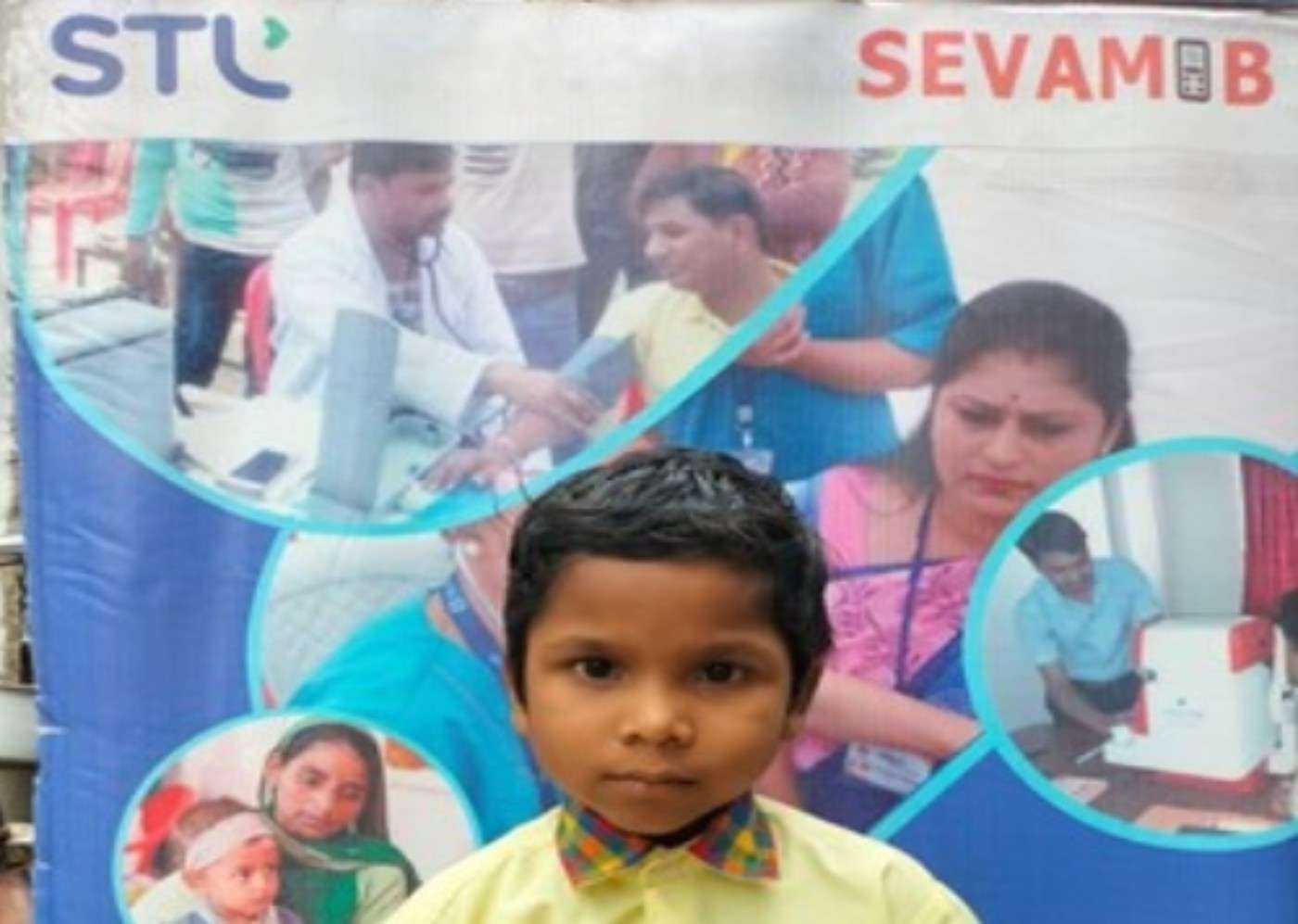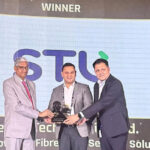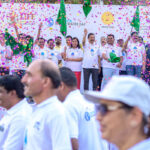
Omkar Sayam is a 6-years school-going boy. He belongs to a poor family, residing in Akola, a village in Maharashtra, India. His parents work on a farm on daily basis for a living. Somehow they manage to earn money that is good enough to meet the daily basic needs of a family of 5.

Their routine lives were going smooth until one day. Omkar accidentally ended up with a severe burn injury over his right shoulder due to a splash of hot liquid; whilst his mother was working in the kitchen. At that time he was given the treatment available in the nearby dispensary.
For a couple of months, Omkar didn’t seek any specific medical advice as his parents couldn’t make enough money for his treatment. This negligence led to the non-healing of wounds which hampered little boy Omkar’s health. When his school teacher noticed this, he brought Omkar to the STL hybrid healthcare camp. It is a program where patients like Omkar get access to free medicines and checkups, rapid tests and other related services. The doctor immediately gave the best treatment to Omkar. Along with the initial measures they also prescribed broad-spectrum antibiotics, analgesics & antifungal lotion to ensure that there is no further spread of infection.
Having treated the case of scald (hot burn) the doctor also focused on counselling Omkar and giving proper instructions to his teacher that have to be passed to his parents regarding the medications and their dosage.
After a couple of weeks of the treatment, Omkar is perfectly fit and healthy. Now he leads a normal life just like other kids. His parents are really grateful to STL’s hybrid healthcare program, as the kind of treatment that was offered to Omkar was not affordable for them if they had taken their son to any normal hospital or clinic.
Like Omkar, there are several people getting access to quality healthcare services across villages in Maharashtra through this program that combines the benefits of onsite care and teleconsultations.
An endeavour for equitable healthcare access to all
About 30% of the Indian population, especially in rural communities, does not get access to quality healthcare services owing to high medical costs. The key issue is that primary and secondary healthcare in rural regions is still not up to grade. Currently, healthcare in rural and remote areas is provided by a small number of government and private nursing homes that have been unable to keep up with the rising demand, or by a handful of quacks who practice medicine in rural areas. In most distant regions, tertiary-level healthcare is not available. Even those who travel to large cities for treatment cannot afford it.

Another issue rural India faces is a lack of understanding about most ailments. In order for rural residents to have sufficient access, necessary and appropriate healthcare services must be available and obtainable in a timely manner. Even when an adequate supply of healthcare services exists in the community, there are other factors to consider in terms of healthcare access for them including lack of financial resources to pay for healthcare services and belief that they will get quality care even on spending money. The need of the hour is to build resilience among these communities. This ensures they are not adversely affected either through lack of access to healthcare or increased risk of contracting newer illnesses.
To enable a future that is inclusive for all, it’s crucial first to ensure the good health and well-being of communities that are susceptible the most. These individuals are located in regions with low to no internet access and have limited financial resources.
Thus, they need interventions that can help them understand the importance of good health while acquainting them with newer tools that ensure access to a qualified healthcare professional anywhere, anytime.
To fulfil this gap, STL launched Sevamob, an AI-based healthcare platform. This is STL’s endeavour to provide quality healthcare services to ~200 villages across Aurangabad, Nandurbar and Gadchiroli, under its Mobile Medical and Tele-health program.
Through this hybrid program STL will ensure that telemedicine, medicines, rapid tests and other related services are readily available to the rural demographic, free of cost.
The Sevamob model converges physical onsite check-ups, on-call doctors and regular specialist health camps. A 24×7 teleconsultation helpline, during COVID-19, has helped rural communities get access to vaccinations and specific primary care.
An initiative that is transforming millions of lives
In districts like Nandurbar and Gadchiroli, which rank the lowest on the Human Development Index, such interventions become critical to building these communities’ health and well-being while reducing the morbidity rate.
As villagers are still not too comfortable with online consultations, this hybrid model ensures confidence building through an onsite team of qualified doctors while providing them with a free telemedicine consultation option they can exercise as per their requirements.
The program has further transformed the lives of over 230,000 individuals leading to more inclusive and healthier communities.















